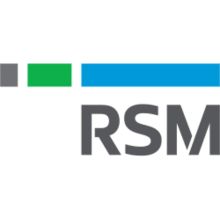Marijuana Legalization
Currently, 33 states and Washington, D.C., and have legalized the use of medical marijuana. Ten states and Washington, D.C., have additionally legalized the recreational use of marijuana. As the push for legalization in states continues, employers that drug test their employees must determine how to move forward with screening as marijuana use becomes legal. In Colorado and Washington, the passage of recreational marijuana laws does not affect an employer’s right to drug test employees, who can still be fired for violating their company’s drug policies. But many employees are starting to protest these policies, claiming that they are unfair. Click on image to download a copy of the map. State Chambers are encouraged to use, share, and rebrand any of the materials COSC provides members. COSC staff are happy to work with you to update and edit any of our maps or other materials (email [email protected]) to meet your needs.
Judicial DecisionsColorado: Confirms Employers' Right to Terminate EmploymentAs the push for legalization in states continues, employers that drug test their employees must determine how to move forward with screening as marijuana use becomes legal under state law. In 2013, the Colorado Court of Appeals upheld Dish Network’s decision to fire a quadriplegic medical marijuana patient after the employee’s drug test returned positive results. This was a violation of Dish’s zero-tolerance drug policy. In June 2015, the Colorado Supreme Court upheld the lower court's decision. The court ruled that the firing was legal under the state's Lawful Off-Duty Activities Statute, which makes it an unfair and discriminatory labor practice to discharge an employee based on the employee’s “lawful” outside-of-work activities. The court found that in order to be “lawful” under the statute, the activity must be lawful under both state and federal law. And since marijuana use, for medical or recreational reasons, is still illegal under federal law, the court found that medical marijuana use was not “lawful” under the statute, and, therefore, Dish's decision to terminate Mr. Coats' employment was not an unfair and discriminatory labor practice. Legal experts expect the ruling, which is the first of its kind, will be influential as other states tackle marijuana-related employment law cases. As states wrestle with the questions that surround marijuana legalization, employers will continue to face questions and uncertainty about their rights when enforcing drug policies. It will be important for states who address this issue to enact straightforward legislation that is clear in articulating employers’ rights in regard to new marijuana laws. Michigan: Fired Employees Eligible for UI BenefitsWhile the Michigan Medical Marijuana Act (MMMA) states that employers are not required to accommodate ingestion of marijuana at work or an employee working “while under the influence of marijuana,” the Court of Appeals for the Sixth Circuit held (2-1) that the MMMA does not regulate private employment either expressly or implicitly, and the Michigan Court of Appeals has held that Unemployment Insurance (UI) claimants testing positive for marijuana cannot be denied benefits if they hold an MMMA card. There is some concern that, absent language specifying otherwise, other states could use the Michigan case law a persuasive authority. The Michigan Court of Appeals held that MMMA preempts Michigan UI law and that disqualifying a claimant for UI benefits due to a positive marijuana drug test is a “penalty” under the MMMA. (MMMA reads: “A qualifying patient who has been issued and possesses a registry identification card shall not be subject to arrest, prosecution, or penalty in any manner, or denied any right or privilege….”) The decision is now law in the state after the Michigan Supreme Court declined to review the case. This decision puts employers in a dilemma: Accommodate medical marijuana users and possibly jeopardize workplace or discharge those employees and pay their UI benefits and, subsequently, higher UI taxes. Maine Struggles with Workers' Comp under Medical MarijuanaAs states continue to debate recreational marijuana legalization, state courts have struggled with the question, among other employment-related issues, of whether an employer has to reimburse the cost of medical marijuana treatment for an employee suffering from a workplace related injury. In September 2017, the Maine Supreme Judicial Court heard oral arguments on a case where the plaintiff, Gaetan Bourgoin, sought reimbursement of his medical marijuana treatment for a back injury suffered while working for the Twin Rivers' Paper Company. Doctors originally prescribed Bourgain opioid painkillers but he switched to medical marijuana after becoming addicted to opioids. Medical marijuana cost Bourgain $300 a month versus $1,500 a month for opioids. The case is an appeal of a decision from the state's Workers’ Compensation Board that ordered Twin Rivers to pay for Bourgoin's medical marijuana prescription to treat injuries sustained on the job. Twin Rivers argues that although legal in Maine, marijuana remains a Schedule I substance under the federal Controlled Substances Act (CSA), and forcing employers to violate federal law jeopardizes their drug-free workplace policies. The Maine Supreme Judicial Court has yet to reach a verdict on this case, but, for the time being, Maine remains one of the only medical marijuana states—along with Connecticut, Minnesota, New Jersey, and New Mexico—that requires employers to reimburse injured workers for medical marijuana. New Mexico became the first state in 2014 to rule that an injured worker is entitled to reimbursement for medical marijuana treatment in Vialpando v. Ben’s Automotive Services. While jurisdictions have taken varying positions on whether medical marijuana qualifies under workers' compensation, certain states have statutory provisions that alleviate employers and insurers of any obligation to compensate for medical marijuana treatment. Colorado, Michigan, Montana, Oregon, and Vermont are among the states which protect employers from such legal obligations to reimburse medical marijuana as part of workers' compensation. Research & ResourcesChamber Resources
Research
Journalism & Opinion
|















